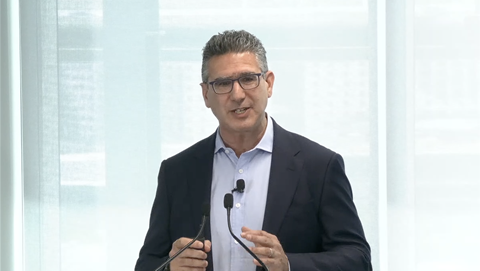Commonwealth Bank customers will soon be able to do away with crumpled, faded receipts or trading their email address for digital versions (and a mountain of marketing spam) thanks to a new deal between the bank and digital receipt fintech Slyp.
Slyp’s platform will be integrated with the CommBank app, allowing customers to automatically receive itemised digital receipts in the app when they pay with their CBA-issued card or digital wallet at participating retailers.
The platform streamlines the returns, warranty and financial management processes with users able to set reminders for warranties or tag receipts for personal or business use.
Slyp works by directly integrating with a merchant’s point of sale system, matching the receipt information to the customer’s card and sending that information to their banking app or through SMS.
The fintech is now backed by all members of the Big Four, who along with shopping centre heavyweight Scentre Group have each taken a minority equity stake in Slyp.
CBA will have a representative on the Slyp board, which is chaired by former PricewaterhouseCoopers global retail lead partner Stuart Harker.
So far only a modest number of retailers have signed onto Slyp, including Bing Lee, Harris Farm Markets and Barbeques Galore.
Retailers can sign onto a two-tiered system, with the free version of Slyp’s platform offering less functionality than the paid version.
Slyp’s website says that retailers can only access a small amount of anonymised customer data which can be used to understand customer demographics and key metrics like net promoter score.
Banks, however, have the ability to access the smart receipt data of users who sign on to receive Slyp receipts.
“Banks will treat this data according to their privacy policy and will only use the data for the purposes for which they have received your consent,” Slyp’s site said.
Slyp CEO and co-founder, Paul Weingarth, said the deal with CBA is a major breakthrough for the fintech.
“To deliver a truly ubiquitous industry standard of digital receipts, we knew early on that we would need to partner with the banks.
“Now, with their backing we are in a strong position to push towards eliminating paper receipts and provide retailers and banks with a new way to delight and engage their customers post-payment.”



_(36).jpg&h=140&w=231&c=1&s=0)
.png&h=140&w=231&c=1&s=0)






 iTnews Executive Retreat - Security Leaders Edition
iTnews Executive Retreat - Security Leaders Edition
 iTnews Cloud Covered Breakfast Summit
iTnews Cloud Covered Breakfast Summit
 Melbourne Cloud & Datacenter Convention 2026
Melbourne Cloud & Datacenter Convention 2026
 The 2026 iAwards
The 2026 iAwards












_(1).jpg&h=140&w=231&c=1&s=0)



